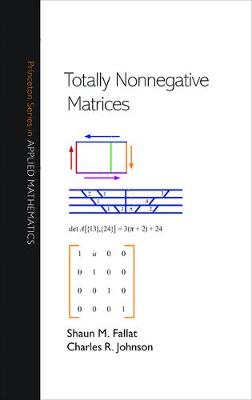Princeton Series in Applied Mathematics
1 total work
Totally nonnegative matrices arise in a remarkable variety of mathematical applications. This book is a comprehensive and self-contained study of the essential theory of totally nonnegative matrices, defined by the nonnegativity of all subdeterminants. It explores methodological background, historical highlights of key ideas, and specialized topics. The book uses classical and ad hoc tools, but a unifying theme is the elementary bidiagonal factorization, which has emerged as the single most important tool for this particular class of matrices. Recent work has shown that bidiagonal factorizations may be viewed in a succinct combinatorial way, leading to many deep insights. Despite slow development, bidiagonal factorizations, along with determinants, now provide the dominant methodology for understanding total nonnegativity. The remainder of the book treats important topics, such as recognition of totally nonnegative or totally positive matrices, variation diminution, spectral properties, determinantal inequalities, Hadamard products, and completion problems associated with totally nonnegative or totally positive matrices.
The book also contains sample applications, an up-to-date bibliography, a glossary of all symbols used, an index, and related references.
The book also contains sample applications, an up-to-date bibliography, a glossary of all symbols used, an index, and related references.
